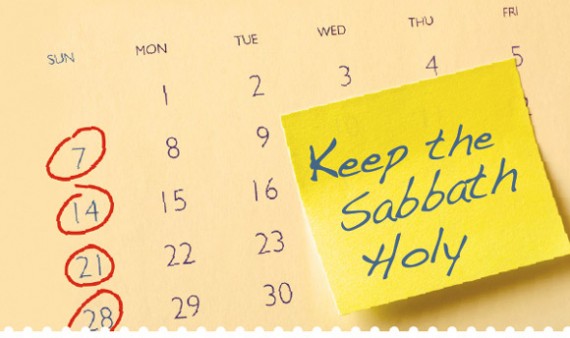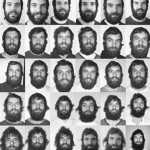What is the sealing of the Holy Spirit? What does it do, how is it received, and how can you know that you have been sealed by the Holy Spirit? These are the questions we answer in this study of Ephesians 1:13-14. But first, let us consider a question from a listener about Calvinism and the fear of changing theological beliefs.

Does Changing My Beliefs Make Me an Apostate?
I have been reading your posts about Calvinism with much interest. For a while now I think I don’t believe it to be true. I have to say, the church we are members of is not very heavy on this, they never or rarely use the TULIP lingo I have been raised in a classic reformed, heavily legalistic family. I have always been afraid of not being chosen. What if I thought I believed in Jesus but just kidded myself? It hampers my own life and my witness to others. I would love to see many come to Christ, but the line: “God loves you,” is nearly impossible, because I cannot see in the counsel of God. Also, changing my view on for example Sunday being the Sabbath, makes me panic, because does changing my view on such an important matter mean that I am on my way to become apostate (or in Calvinistic terms, to have the proof that I wasn’t one of them after all). Does it make sense?
This does make sense, and is exactly one of the reasons I write. I have faced many of these identical fears in my past, and I know that millions of other Christians are facing the same fears as well. I want to write to help liberate people from their bondage to bad ideas about God and bad theology that creates fear in the minds of so many.

Here are a few principles I have learned along the way that helps with these sorts of questions, issues, and fears:
- God has not given us a Spirit of fear, but of power, of love, and of a sound mind (2 Timothy 1:7). If you have beliefs that lead you to fear for your future or fear that you might not have eternal life, then that belief is not of the Holy Spirit.
- God invites us to reason together with Him (Isaiah 1:18). Questions are invited and welcomed by God! Going back to 2 Timothy 1:7, God wants us to be of sound mind. This means that He gave us a mind and wants us to use it. It is wrong to avoid questions and doubts. Look, if what you believe is true, then that truth can stand up to any and all questions. But if what you believe is not true, then the only way you can discover the truth is by questioning what you believe. Either way, you will come to know the truth and the truth will set you free.
- Until we come to realize #1 and #1 above, we will NEVER progress as a disciple of Jesus because we will always be afraid to doubt or ask questions. Learning that we are fully loved and fully free is the first step in true Christian discipleship.
None of this really answers the questions about Calvinism of the Sabbath, but the three principles above will free a person up to begin thinking clearly about these two topics. And if you want to know what I have taught on the two subjects, here are some links for further study:
- Calvinism: The Words of Calvinism and the Word of God
- Genesis 2:1-3 – The Sabbath (Part 1)
- Genesis 2:1-3 – The Sabbath (Part 2)
- Should Christians Observe the Sabbath?
- Luke 6:1-5 – Going Against the Grain on the Sabbath
- Luke 6:6-11 – Jesus Gives a Hand on the Sabbath
What is the Sealing of the Spirit (Ephesians 1:13-14)?
In the previous study of Ephesians 1:13, we discussed the differences between the sealing of the Holy Spirit and the filling of the Holy Spirit. In this study, we will take a closer look at what exactly the sealing of the Spirit is.

So what is this sealing of the Holy Spirit that Paul writes about in Ephesians 1:13? Paul says we have been marked with a seal.
In Paul’s day seals were used in at least four ways. First, seals were sometimes put on letters to guarantee that it was genuine and that it was written by who it claimed to be written by (1 Kings 21:8; Esther 8:8). Kings might seal their letters with a signet ring. We do something similar when we get a document notarized.
A seal was also sometimes placed on goods or merchandise that was traveling from one place to another to indicate who they belonged to and where they were going. It indicated ownership (2 Corinthians 1:22; Revelation 7:2; 9:4). Again, we do this with our possessions today all the time. We write our names in our books, or on our kid’s clothes when they go to camp. Ranchers brand their cattle. They are placing a mark on it to show ownership.
The third way seals were used in Paul’s day was to show something was authentic and approved (John 6:27). Sometimes when we buy clothes, in one of the pockets will be a little piece of paper saying it has been inspected and approved by someone.
The fourth type of seal was for protection or warning. Remember when Jesus was put in the tomb, Pilate told the soldiers to put his personal seal upon the tomb (Matthew 27:66; Ephesians 4:30). This was to protect the tomb and warn everyone to stay away and keep out!
So Paul says here that God has placed a seal upon us as well. It is to guarantee that we are genuine, it shows ownership, who we belong to, it shows that we are approved, and it provides us with protection or security.
Now, is this mark visible to you and I? No. We cannot see it. We cannot put our finger on it and say “Here it is.” Neither is it revealed by some sort of spiritual manifestations like being slain in the spirit or speaking in tongues or laughing hysterically. The sealing of the Spirit is invisible to us in the physical realm.
According to Galatians 5:22, the fruit of the Spirit is love, joy, peace, patience, kindness, goodness, faithfulness, gentleness, and self-control. So if a person has some or all of these, it is a good indication that they also have the Holy Spirit. We cannot see the wind, but we can see what the wind does. It is the same with the Spirit.
So this sealing of the Spirit is an invisible mark. We cannot see it or feel it, but we can know we have been sealed.
We can know this by learning a bit more about the sealing of the Holy Spirit.
The Seal and Deposit
The only other book in the New Testament that talks about the sealing of the Holy Spirit is Paul’s second letter to the Corinthians (2 Corinthians 1:22) So the question arises, “Why did Paul only mention this sealing in these two letters?”
The reason has to do with the towns of Ephesus and Corinth themselves. Both Ephesus and Corinth were great centers of the lumber industry in ancient times.
 A raft of logs would be floated from the Black Sea and when they got to Ephesus or Corinth, the different lumber merchants would come and look over the logs and make their selections of which ones they wanted. One would say, “I will take these,” and another, “I’ll buy those over there.”
A raft of logs would be floated from the Black Sea and when they got to Ephesus or Corinth, the different lumber merchants would come and look over the logs and make their selections of which ones they wanted. One would say, “I will take these,” and another, “I’ll buy those over there.”
Then they would do two things. They would cut a certain wedge upon each log that they had bought which marked that log as bought and paid for and to show who it belonged to. This was called the seal.
The second thing they would do was to put a down payment on the logs – a deposit – and when the logs were delivered or picked up, they would then pay the rest of the money.
Paul talked about this seal in Ephesians 1:13, and look what he mentions now in Ephesians 1:14.
Ephesians 1:14. who (this is the Holy Spirit) is a deposit guaranteeing our inheritance until the redemption of those who are God’s possession—to the praise of his glory.
The Holy Spirit is a seal and a deposit guaranteeing our inheritance. It is just like those logs.
The Holy Spirit will provide us with new bodies and an inheritance when we finally get to heaven, but we have a sealing in the Holy Spirit right now which promises and guarantees that this inheritance is ours and is waiting for us.
It is like a deposit, says Paul. God has made a purchase, and just to prove that He is going to follow through on His purchase. He has made a down payment. He has given a deposit in the form of the Holy Spirit.
When we buy a car or a house, we make a deposit. We give a down payment. This tells the seller that we are promising to buy it. That is what God has done here. He has given a deposit to us. He has promised that what He has begun, He will finish.
It is also interesting to note that the Greek word here for deposit is the modern Greek word for an engagement ring. And we all know what an engagement ring means. it is like a deposit. It means that two people are promised to each other or pledged to be married. God has promised to come for us and make us heirs of Himself. This deposit guarantees our inheritance in heaven. The deposit is a little bit of heaven here on earth.

Also in Ephesians 1:14, there’s the inheritance that awaits us in heaven, and there’s the redemption of our bodies. We looked at redemption previously when we considered Ephesians 1:7, and Paul is just reminding us of the similar idea here. We are heirs of God and co-heirs with Jesus Christ. We have been redeemed from our captivity to sin, and because of the sealing of the Holy Spirit, we will also experience the redemption of our bodies. We have been delivered from the penalty of sin, the power of sin, and ultimately, finally, eventually, when we receive our new bodies in eternity, we will be delivered from the presence of sin.
As great as the gift of the Holy Spirit is, He is only a deposit, a foretaste, a small glimpse of the beauty, glory, greatness, and majesty that awaits us in eternity with the redemption of our bodies.
So how do we receive the sealing of the Spirit, and how can you know that you have been sealed by the Holy Spirit?
We looked briefly at both of these questions last time in our study of Ephesians 1:13. When we believe in Jesus for eternal life, we are instantly and permanently sealed by the Spirit. The sealing happens the moment you believe in Jesus for eternal life. And though you cannot see it or feel it, you can nevertheless know you have been sealed by the Spirit because God does not lie.
 Just as you can know that you have eternal life because Jesus does not lie to us, we can know we have been sealed because God does not lie to us. If you have believed in Jesus for eternal life, then you have been sealed by the Holy Spirit. You can take it by faith because it is a promise of God and God does not lie. The indwelling Holy Spirit is a deposit in your life that God has given to you in advance of your final glorification, redemption, and new resurrected body in eternity.
Just as you can know that you have eternal life because Jesus does not lie to us, we can know we have been sealed because God does not lie to us. If you have believed in Jesus for eternal life, then you have been sealed by the Holy Spirit. You can take it by faith because it is a promise of God and God does not lie. The indwelling Holy Spirit is a deposit in your life that God has given to you in advance of your final glorification, redemption, and new resurrected body in eternity.
God has placed His mark on you, His seal of ownership, and has guaranteed that you will be glorified with Him in eternity. This is something to be grateful and thankful for.
This is the end of Paul’s one long sentence which opens Ephesians. So next, in Ephesians 1:15, Paul begins to explain what he hopes we will do with the blessings, riches, and inheritance we have received from God. This is where we will pick up in our next study.



![[#23] Genesis 2:1-3 (Part 2) – Liberating God from the Sabbath Rest](https://redeeminggod.com/wp-content/uploads/2016/01/enjoy-life-150x150.jpg)


![[#22] Genesis 2:1-3 (Part 1) – The Sabbath Rest of God](https://redeeminggod.com/wp-content/uploads/2015/09/One-Verse-Podcast-Jeremy-Myers-150x150.jpg)


 Jennie Yabroff reported in Newsweek that “After A. J. Jacobs spent a year reading the Entire Encyclopedia Britannica for his book “The Know-It-All,” he figured he had the yearlong experiment thing down. How much harder could it be to follow every rule in the Bible? Much, much harder, he soon discovered, as he found himself growing his beard, struggling not to curse, and asking strangers for permission to stone them for adultery.”
Jennie Yabroff reported in Newsweek that “After A. J. Jacobs spent a year reading the Entire Encyclopedia Britannica for his book “The Know-It-All,” he figured he had the yearlong experiment thing down. How much harder could it be to follow every rule in the Bible? Much, much harder, he soon discovered, as he found himself growing his beard, struggling not to curse, and asking strangers for permission to stone them for adultery.”